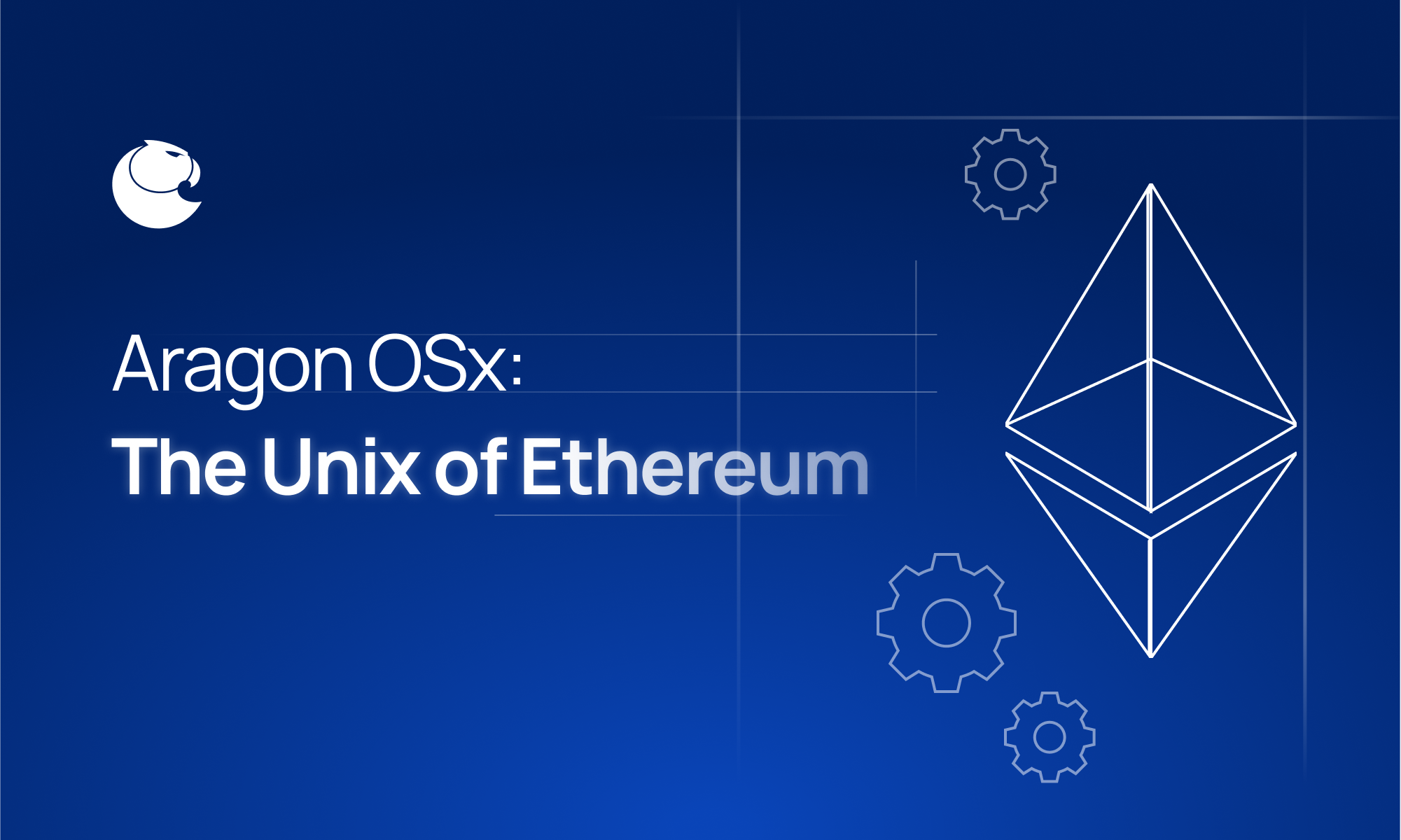DAO technology is currently in the early stages of adoption. As we continue to experiment, we are learning about successful governance models and best practices for long-term sustainability. One of the main challenges for DAOs is that blockchains are immutable, making it difficult to adapt and experiment. To overcome this obstacle, many DAOs have relied on off-chain operations executed by a trusted group of individuals. However, we believe that for DAOs to be truly unstoppable, they must operate on blockchains.
To address this issue, we have developed a new DAO framework called Aragon OSx. This framework is designed to be flexible and modular, allowing organizations to easily customize and adapt their governance. By following the Unix philosophy and building simple, composable building blocks, organizations can find the solutions that work for them and make changes as their organization evolves.
Now let’s explore how Aragon OSx functions as an operating system for DAOs, and how it aligns with the Unix philosophy.
An operating system is responsible for making a computer run smoothly. Similarly, Aragon OSx acts as the intermediary between the hardware and software of a DAO. It functions as a permission management system, granting or denying permissions to programs (or apps) based on the organization’s settings. With Aragon OSx, organizations can have multiple apps running simultaneously, and easily add or remove apps as needed.
The operating system consists of a trusted kernel that has control over the hardware, and external programs that request access to shared resources. Each app installed on the operating system requires permission from the OS to access certain tools or features. This system allows for flexibility and security, as organizations can choose which permissions to grant or deny to each app.
The key advantage of operating systems is that when updates or changes are needed in an app, only the app itself needs to be updated. This is similar to the approach taken in Aragon OSx. Rather than modifying the entire operating system, organizations can make changes to individual apps, which are modular and easier to update. This simplifies the process of updating and changing governance structures within a DAO.
To guide the development of Aragon OSx, we looked to the Unix philosophy. This philosophy promotes simplicity, modularity, and flexibility in building programs and systems. By applying these principles, we ensure that our operating system is efficient, reusable, and easy to understand and verify.
Aragon OSx incorporates the Unix philosophy by having a DAO core at the center and plugins at the edges. The DAO core acts as the trusted kernel, managing permissions for external plugins. The core grants or revokes permissions to the plugins, which are small, specialized smart contracts that solve specific problems. These plugins can be mixed and matched to create customized governance structures for different organizations.
Developers have control over their own plugins, similar to how they have control over their own apps. They can design their plugins to be upgradeable or non-upgradeable, depending on their needs. This provides flexibility and allows developers to iterate quickly and make changes as necessary.
By combining the concepts of an operating system and the Unix philosophy, Aragon OSx provides a robust framework for DAOs. It allows for adaptability, customization, and scalability, enabling DAOs to evolve and thrive in the blockchain ecosystem.
